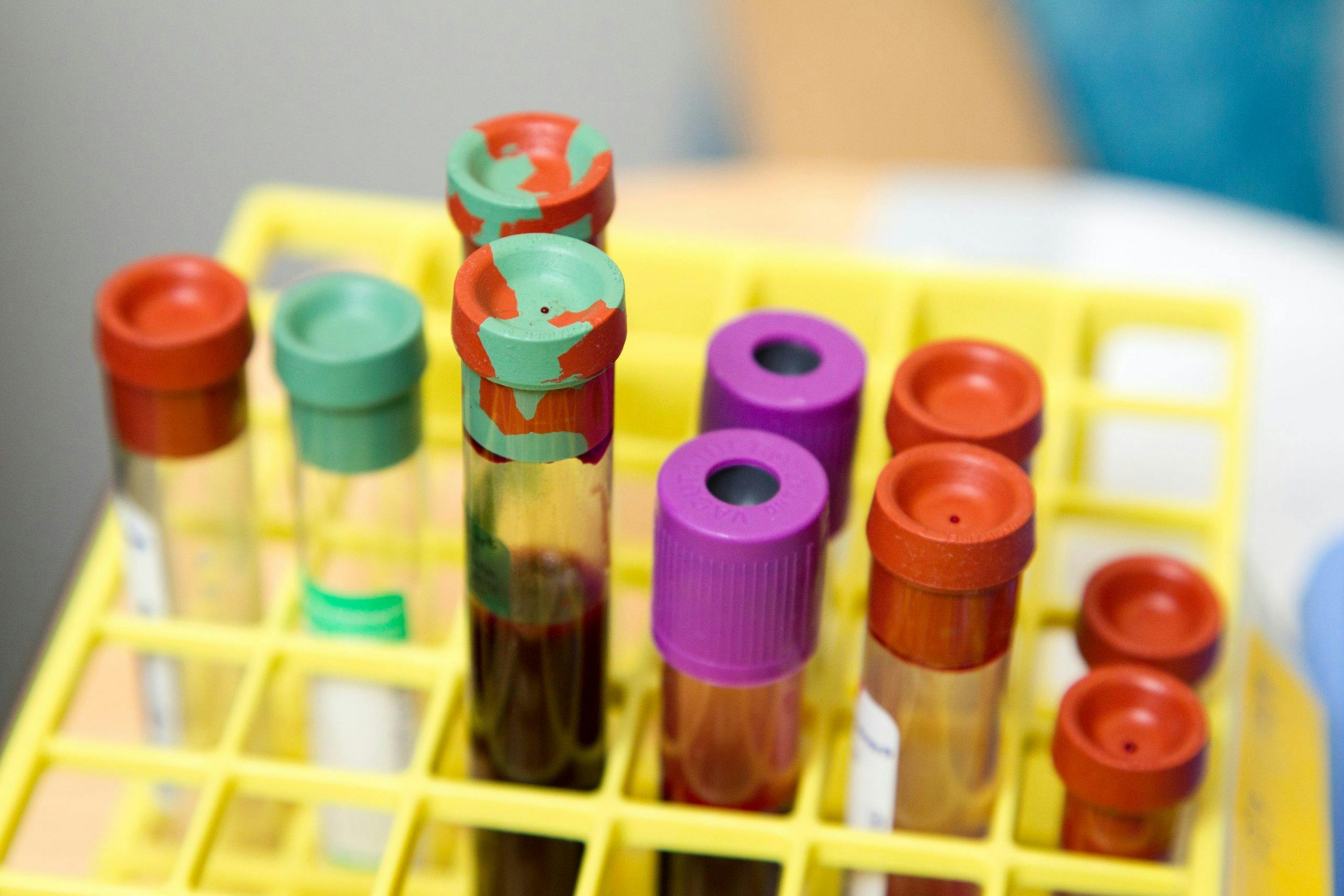
Determining whether a chordoma tumor is responding to treatment – or if the disease has recurred – is a pressing challenge for patients and their care teams. Current techniques are imperfect: imaging can be impeded by surgical scarring and hardware, for example, and small recurrences or metastases may go undetected until they are large enough to show up on scans.
An exciting tool has emerged that could someday advance this area of patient care. Called “liquid biopsy,” it’s a blood test that measures mutated DNA that spills out of a tumor and circulates in the bloodstream and other fluids. Liquid biopsies have shown potential for improving the ease and accuracy of monitoring disease progression in several common cancers. Now, a new proof-of-principle study found that it could hold promise for chordoma patients, too.
With support from the Chordoma Foundation, a team led by Johns Hopkins University physician scientist Dr. Chetan Bettegowda collected blood samples from 32 chordoma patients. To know which mutations to look for in the blood analysis, they also conducted a type of DNA sequencing on samples of the patients’ tumors and healthy tissues.
The scientists were excited to find that circulating tumor DNA is a detectable, sensitive biomarker for chordoma, found in the blood of nearly 90% of participants. To explore what changes in these DNA levels over time could say about treatment response or disease recurrence, the team also conducted follow-up blood tests. They found correlations between circulating tumor DNA and disease: for example, imaging at the time of patients’ second blood draw indicated evidence of disease in three individuals, all of whom had tumor DNA in their blood.

In another finding of interest, sequencing of participants’ tumor samples confirmed results from other teams that about a quarter of chordomas have mutations in epigenetic regulatory genes. (Epigenetics control which genes are switched on and off.) This adds fuel to studies exploring epigenetic therapies – an approach already support by the Foundation.
While liquid biopsy is a promising tool, further research will be needed on a larger number of participants over a longer duration. If its utility can be confirmed, this blood test could eventually be integrated into routine clinical practice to improve diagnostics, care, and outcomes for chordoma patients.
Sign up for our newsletter
To learn about exciting recent research results, newly launched projects, and how you can help drive progress, subscribe to our newsletter.